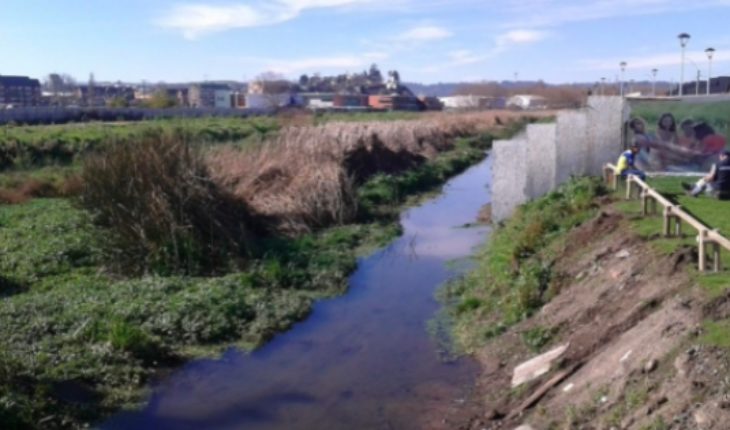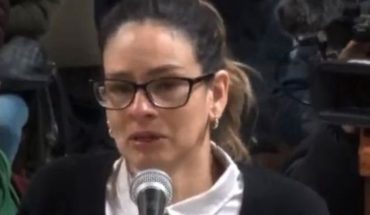Stephen Hall and Associates, in the presentation of his work are needed dams in Patagonia?, re Aliza an analysis of Chilean energy future and points out quite clearly: “our society is the common task of today make changes, that allow moving toward an energy future that is aimed toward sustainability and democracy, overcoming the” obstacles of monopolistic markets imposed their economic power over territories and the future of all Chileans.”
And they were not wrong. Today Chile is a leader in renewable energy, non-conventional, producing almost the double of Hidroaysén promised, and only required a joint work which resulted in 2050 energy policy.
However, Chile follows with environmental problems of magnitude, such as the quality of air, pollution of waters and water insecurity, risks of natural disasters and loss of biodiversity. Many of these associated with the occupation of unsuitable spaces to live, ecosystems often relievers in each of the identified environmental problems. Problems that will increase their intensity in the near future, due to the pressure and uncertainty that is climate change.
One of these valuable spaces are wetlands, which may be associated with the areas of flood of water such as rivers or lakes systems, or which correspond to depressions where water accumulates and enables the development of a vegetation adapted to this condition , and that the difference of the eminently terrestrial.
These areas are unique in the development of habitats to sustain a high biodiversity of flora and fauna. They concentrate, purify and release water during periods of drought, which accumulate during extreme rain events, protecting human populations from floods. Furthermore, they capture greenhouse gases, and therefore, purify the air that we breathe, a function that multiplies when maintaining associated native tree vegetation, as it is the case with the “hualves” or “pitra”.
Goes other quantifiable benefits, including that they are cultural spaces of knowledge and the popular feeling, through its use for recreation, education, science or small controlled agricultural productions in the periods in which low wetland water (as it is currently the case in San Pedro de la Paz). Also through its use for livestock, when they are only green spaces that generate herbs, due to subsurface water that in summer times (as still occurs in areas of the wetland Paicaví-Rocuant-Andalién).
Unfortunately these spaces are free kick due to the intensive occupation and the lack of clarity of the legal aspects that protect them. While there are some initiatives under discussion in Congress, there is no certainty of approval and does not address the problem in all its edges. The most advanced project, for example, only would apply to protect urban wetlands.
Therefore, we need a good planning, a management integrated watershed, punishing environmental crimes and authorities with strong powers, as well as a society committed to these ecosystems and protection of water as a common good. The Constitution and the code of waters do not assume the importance of these ecosystems. Worse still, perversely today there are economic incentives from the State to dredge wetlands for agriculture, making “blind eye” when they are refilled or contaminated.
Therefore, it is naive to think that these reforms, which we do not even know when will be approved, have the real ability of solving these problems. We must change the way of reasoning and advance coherent public policies, including the responsibilities of the State in their national and local governances.
So we must also prevent the advance of private, especially real estate experts in fill and piping the water. The same applies to projects of the State, who despite being responsible for providing us with a quality of life right through a trustworthy environment, at the same time is the principal of various projects executed badly, without the proper scientific orientation or aspects which elude formal assessment and/or mitigation of impacts, through assessments carried out by the same State.
An example of this is the inter-port motorway, which discourages flows of natural water to and from the Bay, in the same sector, the widening of the terminal area of the Andalién River “to avoid floods”, and that step has eliminated meanders and has increased the depths of natural areas from flood.
In fact, it seems that the errors of the past nothing have taught us, since we are still missing the opportunities to do better. For example, the projected industrial bridge that is projected onto the Bío-Bío River, in its connection to the route 160 pass on the one hand wetland Los Batros, in San Pedro de la Paz.
This would be done “outside the protected area”, as authorities have said, but “within the flood area” according to the course of water, which will show it no doubt some will seek new areas that flood, with the consequent risk to the population that could be low the water, generating new costs for the State, and especially for the health of the people.
With things as well, we cry or do something? Every day we are moving towards a globalized society empowered in knowledge, which has the tools to recognize the functional importance that offer wetlands and natural systems as a whole. Traditional knowledge is the science of the future.
This condition should lead to a vision of “sustainability and environmental democracy”, surpassing us proprietary aspects towards the common good. Thus, fill wetlands to build is not the only alternative, as it wasn’t Hidroaysén from the energy point of view.
Impair them will have a significant cost for everyone. It is not possible that while developed countries move towards the rescue of these spaces, creating wetlands, river banks and flood areas, the country follow retrograde ideas fillings, and pipes.
Is not possible to continue to think that economic growth is the unique sustainability base, since it also requires social equity, which is expressed in the quality of life offered by the well-preserved natural systems and the different benefits that we get from them, even if some do not wish to see that these are, literally in their own noses, whenever they perform the simple act of breathing.
Poured in this op-ed content is the sole responsibility of the author and do not necessarily reflect the editorial line nor the counter position.





